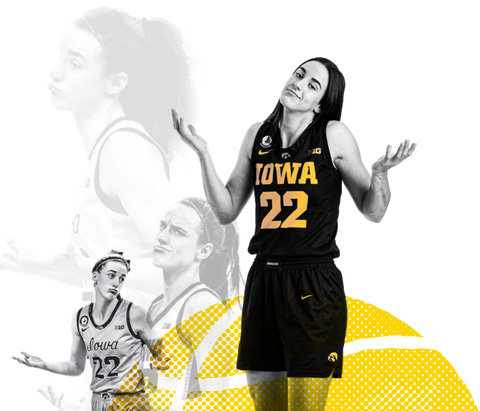Caitlin Clark and the Unfairness of Attention
What Clark's star power can teach us about the arbitrary nature of online fame
I returned and saw under the sun, that the race is not to the swift, nor the battle to the strong, neither yet bread to the wise, nor yet riches to men of understanding, nor yet favor to men of skill; but time and chance happeneth to them all. - Ecclesiastes 9:11
Attention is the currency of the internet.
In a technical sense, money is the currency of the internet. Dollars. Euros. Inexplicably, virtual tokens with ‘DOGE’ written on them. But to get the actual currency, you need attention. If you can’t make people notice you it’s unlikely you’re going to make much money or have much impact. Sure, this a rule that applies to most forms of media, including traditional media. But the attention-to-money pipeline exists in its purest form online, with social media stars spinning up media empires from literally nothing other than their ability to attract eyeballs.
What fascinates and horrifies me about the attention economy is how brutally unfair it can be. A recent spat with women’s basketball star Caitlin Clark shows why.
Caitlin Clark is a phenomenon.
If you’re not familiar with Clark, she’s one of the best women’s basketball prospects in history. She’s a generational player who this year broke the all-time scoring record for college basketball - men or women.
She is electric. She’s not just a great player, she’s incredible to watch. She slices through defenses. She has unlimited range on her three point shot. She routinely makes absurd plays that stretch the limits of the game. She plays with swagger and attitude. She’s easily one of the greatest college basketball players of all time.
It’s hard to describe elite athletes with words, so here’s a visual example of the Iowa Hawkeye star’s style: the shot that broke the all-time points record.
That’s not even an unusual shot for her. She’s just that good.
But beyond just being a generational talent, Caitlin Clark is also an attention magnet. At just 22 years old, she may already be the most popular player in the history of women’s basketball.
If that sounds absurd to you, here’s a fun chart:
Women’s college basketball has been shattering records for viewership in the last two years, largely based on Clark’s star power. She sells tickets unlike any other player in women’s hoops history. Her team played an exhibition game in football stadium this year, and ended up selling more than 55,000 tickets.
Clark is headed to the professional game this year, having been drafted first by the WNBA. Despite being a professional league, the WNBA has always struggled with ratings. The WNBA finals last year drew only 728,000 viewers. Clark’s last college game, the 2024 NCAA women’s championship, drew almost 19 million viewers. That’s an absurd number - for what I believe is the first time ever, the women’s championship actually drew more viewers than the men’s championship. Hell, Clark’s final championship game drew more viewers than the NBA Finals last year!1
Caitlin Clark is riding an absolute tsunami of popularity that the women’s game has never seen before, and the WNBA is poised to benefit. The televised WNBA draft ceremony got four times more viewers than they ever had before. Her new team is selling tickets at a remarkable clip, before she’s ever played a professional game.
This is obviously great for the women’s game. But it’s led to some interesting comments from older women’s basketball players. The reigning MVP of the WNBA, Breanna Stewart, said she didn’t consider Clark one of the all-time great college players. Legendary player Diana Taurasi said on ESPN that she wouldn’t even take Clark with the first overall pick, and that “reality was coming” for Clark:
Reality is coming.... you look superhuman playing against some 18 year-olds but you're going to come play with some grown women that have been playing professional basketball for a long time.”
People had pretty strong reactions to this! The overall theme was basically ‘Older players are jealous of the attention she gets. They should just be thankful.’ And yeah, at first glance this does appear to be some form of envy. Why are they throwing shade at someone poised to make their league significantly more popular?
Here’s the thing - I’m actually sympathetic to the older generation in this case. For one thing, Taurasi’s comments may have been stripped of context, and Stewart also later clarified she’s glad Clark is joining the league. Some of this is just the media creating drama and always needing a conflict to talk about.
But I also want to make a much stronger claim. Even if Taurasi and Stewart had explicitly said “I’m jealous of Clark. I’m mad she gets so much damn attention when I didn’t get that much”, that is still a reasonable thing to feel.
I wouldn’t blame them, because the logic of who gets famous and who doesn’t is the furthest thing from fair.




